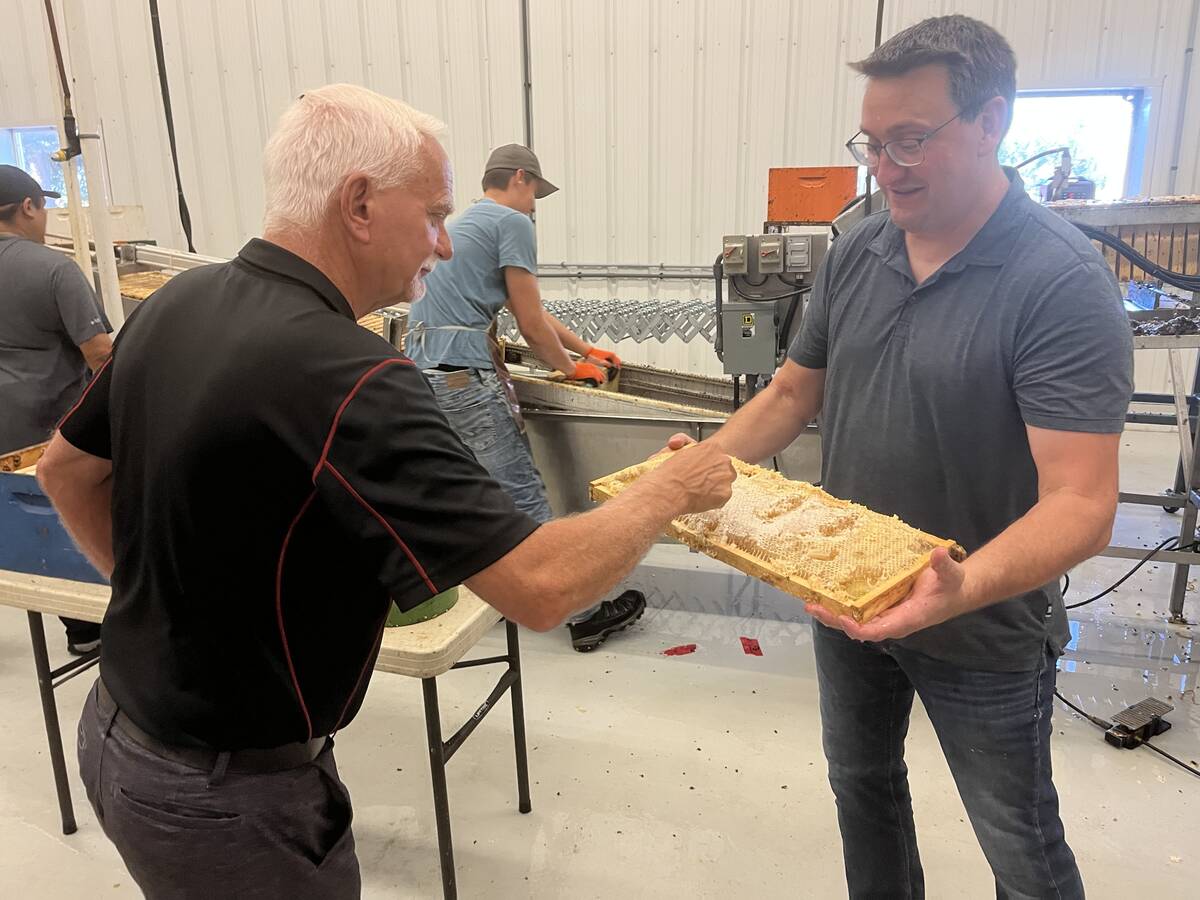The federal government will provide $2.8 million over the next year for
community projects that enhance rural Canadians’ quality of life.
Andy Mitchell, federal minister responsible for rural development, made
the announcement April 6 in Charlottetown, P.E.I., at the second annual
National Rural Conference.
Grant applications must be submitted by Oct. 31.
For more information, visit www.rural.gc.ca or call 877-295-7160.
Ottawa will also provide $25,000 to help build a national rural youth
network where young rural Canadians can share their perspectives with
Read Also

Alberta honey business ‘thrives’ despite bumpy beginnings
Thrive Honey showcases its honey production in market where Alberta produces 40 per cent of all honey produced in the country
each other and the federal government.
Mitchell said in an interview that young people will develop the
network themselves after consultation with their organizations. He said
4-H and the Canadian Young Farmers Forum will fit into the network, but
they will decide how that happens.
“The youths’ point is they are leaders of today, not just of tomorrow.”
The conference discussed how to train and keep young people in rural
areas, whether it be through jobs, the internet or culture, Mitchell
said. He noted that Ottawa has promised to connect everyone to high
speed internet access by 2005. Now, 80 percent of rural communities do
not have high speed service.
While Mitchell would not commit the government to decentralizing civil
service jobs, he said rural areas will see new and better access to
government services.
The rural conference also recognized some of the successful programs
among the 300 pilot projects that are funded by the federal government
to ensure rural sustainability, such as a small loans program for
business and computer training for women.
Mitchell said he would continue talking with his cabinet colleagues
about how to keep immigrants in rural areas. In 1971, one-third of all
immigrants settled in rural areas, but last year they went to urban
areas “almost exclusively.”
















